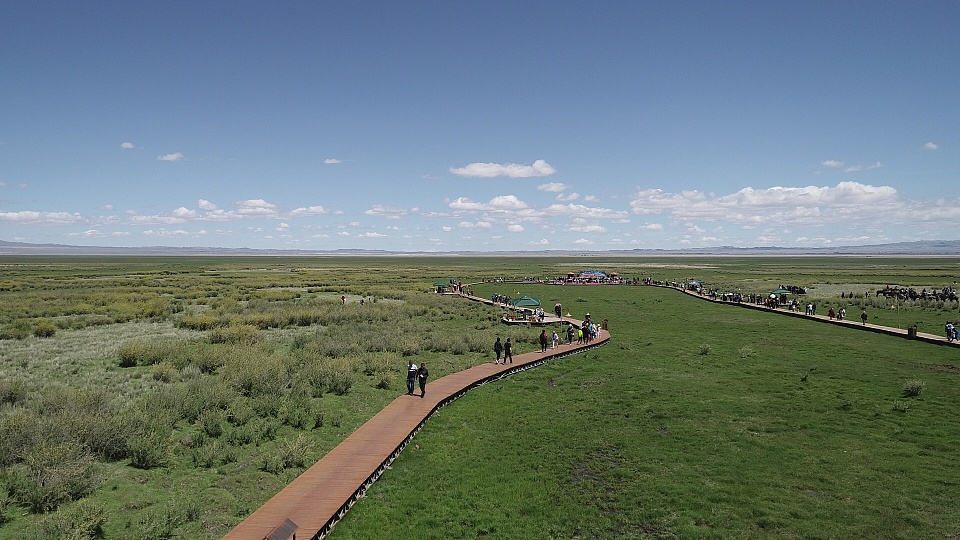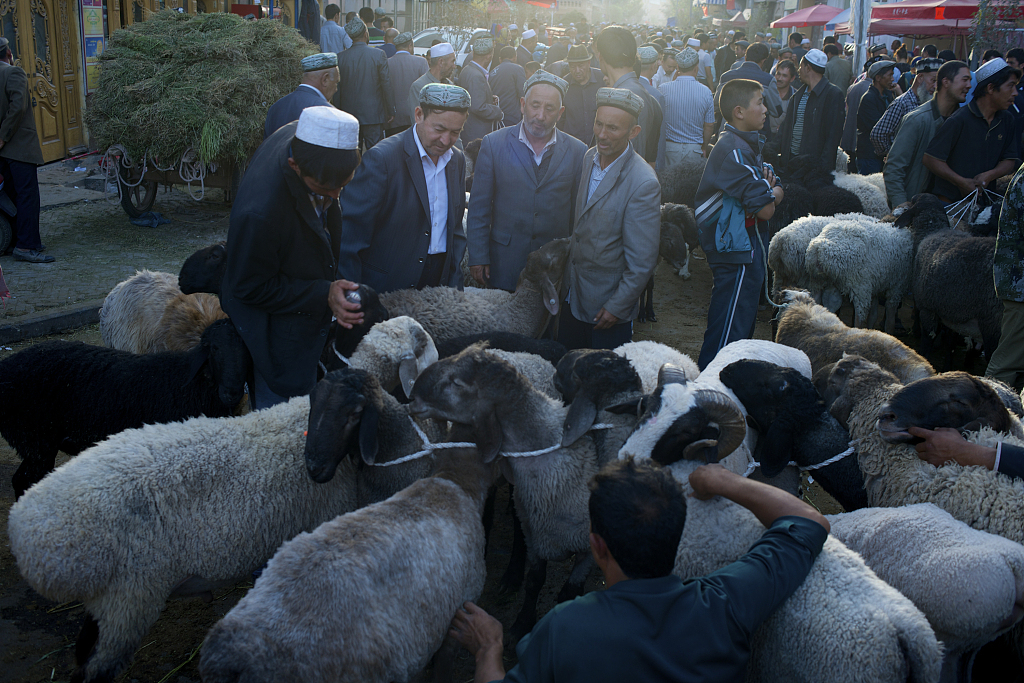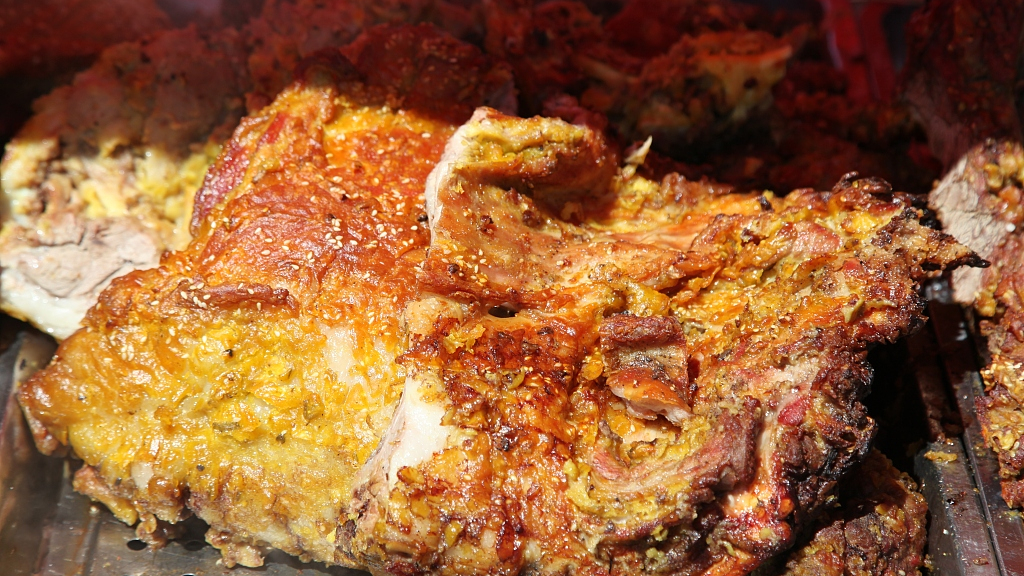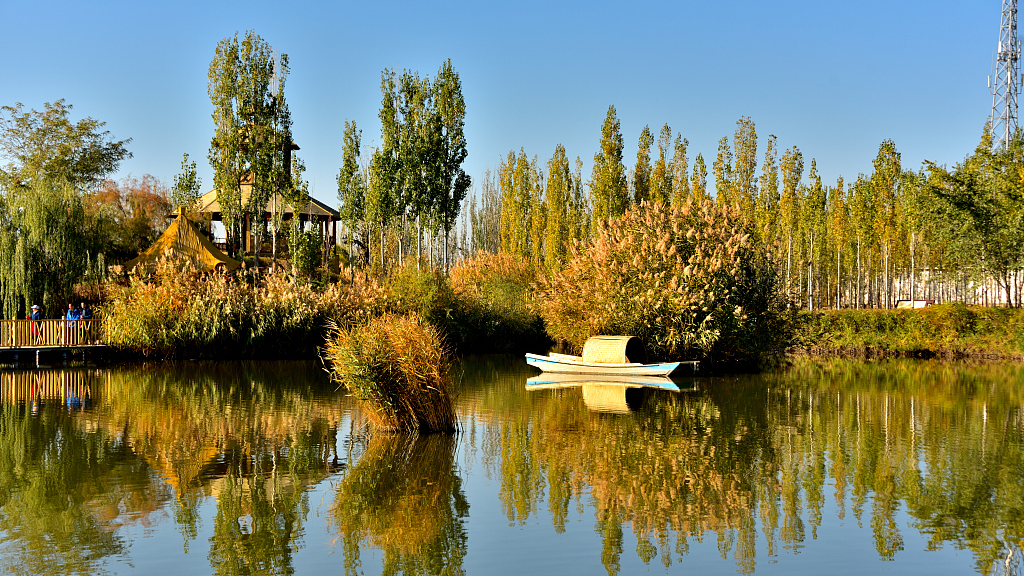

Railway authorities in northwest China's Xinjiang Uygur Autonomous Region will increase the number of trains to meet public demand as the Corban Festival approaches, adding a total of 157 trains, according to China Railway Urumqi Group Co. Ltd.
The Corban Festival, also known as Eid al-Adha or the feast of the sacrifice, falls on August 11 this year. On this particular holiday, believers gather to pray and prepare large amounts of mutton dishes. Mutton meat is related to the origin of the festival: Muslims believe that it honors Abraham's willingness to sacrifice his son upon God's command. God then provided a lamb to sacrifice so that Abraham didn't have to sacrifice his own son.
When people prepare mutton dishes when celebrating the festival, they divide the meat into three parts: one for the poor and needy, another for themselves and their family, and the other for their relatives.

The Corban Festival in Kashgar Prefecture, Xinjiang Uygur Autonomous Region, China. /VCG Photo
In China, the festival is celebrated among a few ethnic groups, including the Uygur, the Hui, the Kazakh, the Uzbek, the Tajik, and the Kirgiz.

Roast lamb in Hami, Xinjiang. /VCG Photo

The foot of Tianshan Mountain, Xinjiang. /VCG Photo

Bosten Lake, Korla, Xinjiang. /VCG Photo
Forty-eight high-speed trains link Urumqi, the capital city of the Xinjiang Uygur Autonomous Region, with other destinations, such as Hami, a tourist attraction. Thirty-three trains connect Urumqi with Korla, another popular destination for holiday makers, in addition to Shihezi and Yining.
(With input from Xinhua News Agency)
(Cover via VCG)

Copyright © 2018 CGTN. Beijing ICP prepared NO.16065310-3
Copyright © 2018 CGTN. Beijing ICP prepared NO.16065310-3